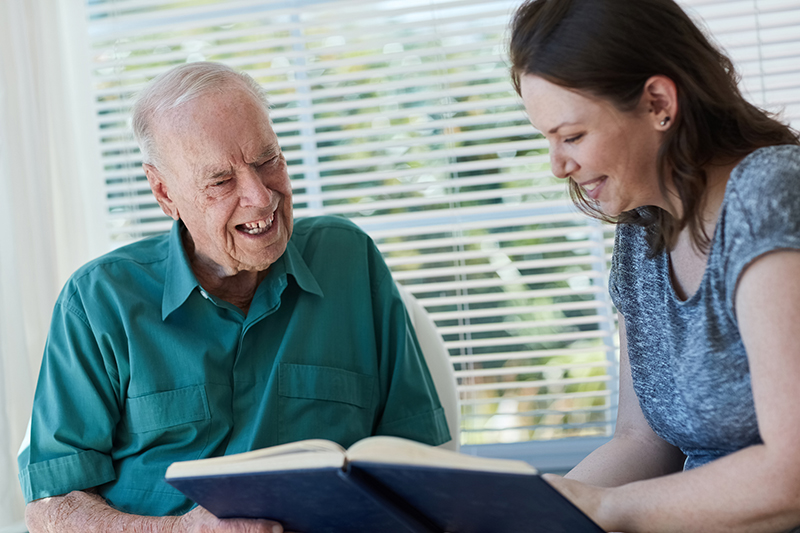
There are many benefits of senior care when a loved one has cognitive decline.
If you are providing care for a senior relative, you’re entirely mindful of the spectrum of emotions involved. On one hand, it’s a huge honor and incredibly rewarding. Conversely, it is often challenging, draining, and stressful. Add to that the extra difficulties inherent with cognitive decline, and it is easy to see how family caregivers can easily become overwhelmed.
Cognitive performance can decline gradually, or it can happen seemingly overnight, depending on the root cause (Alzheimer’s or another form of dementia, traumatic brain injury, or Parkinson’s, to name a few). Regardless of the cause of someone’s cognitive decline, there are measures loved ones may take to supply the best possible care.
- Observe the person’s baseline behaviors and also the specific changes you are noticing.
- Make arrangements for a comprehensive exam with the primary care physician for an exact diagnosis and to eliminate other medical ailments.
- Ask the doctor for educational resources regarding the diagnosis so you can be fully informed as to what you may anticipate, and to share with other relatives.
- Examine the person’s needs – both today and ongoing, as needs may change as time passes. Take into account physical as well as emotional concerns, including their capacity to:
- Tend to personal hygiene tasks
- Manage housekeeping, meals, laundry, and other chores around the home
- Maintain social ties and stay involved in enjoyable activities
- Make it to medical visits, take care of food shopping, as well as other needs outside the home
- Remain safe: from wandering, falls, medication mismanagement, and more
- Create a strategy to meet any needs identified.
- Evaluate finances and legal paperwork to make sure someone has been selected as power of attorney to guarantee the person’s wishes will be followed and decisions made on their behalf when needed.
- Find help – through an online or in-person support group for family care providers, as well as for the specific diagnosis if at all possible.
What is important to remember is you’re not alone! Morning Glory Home Care’s experts in Alton dementia care and caregivers throughout the surrounding areas are always readily available to work together with you, providing opportunities for you to step away from your caregiving duties for your own personal needs and interests. Taking care of yourself is vital to having the ability to successfully take care of somebody else. Arrange ongoing, regular time away for self-care like:
- Physical activity – at least 20 minutes of physical exercise 3 times a week, or per doctor’s recommendations.
- Healthy eating – avoid the drive-through and quick, sugary, or salty snacks and opt for nutritious alternatives
- Sleep – something which is extremely challenging when looking after a person with cognitive decline, but very important
- Medical and dental examinations – including caring for your mental health to protect yourself from caregiver burnout and depression
- Comforting, enjoyable activities – reading, a coffee date with a friend, and whatever hobbies and hobbies brighten your day
Call Morning Glory Home Care at 618-667-8400 to explore our respite care services, offered by fully trained and experienced senior care professionals. Request a complimentary consultation to learn more about the benefits of home care, and let us help you guarantee the best possible care for someone you love with cognitive decline – and, for yourself.
